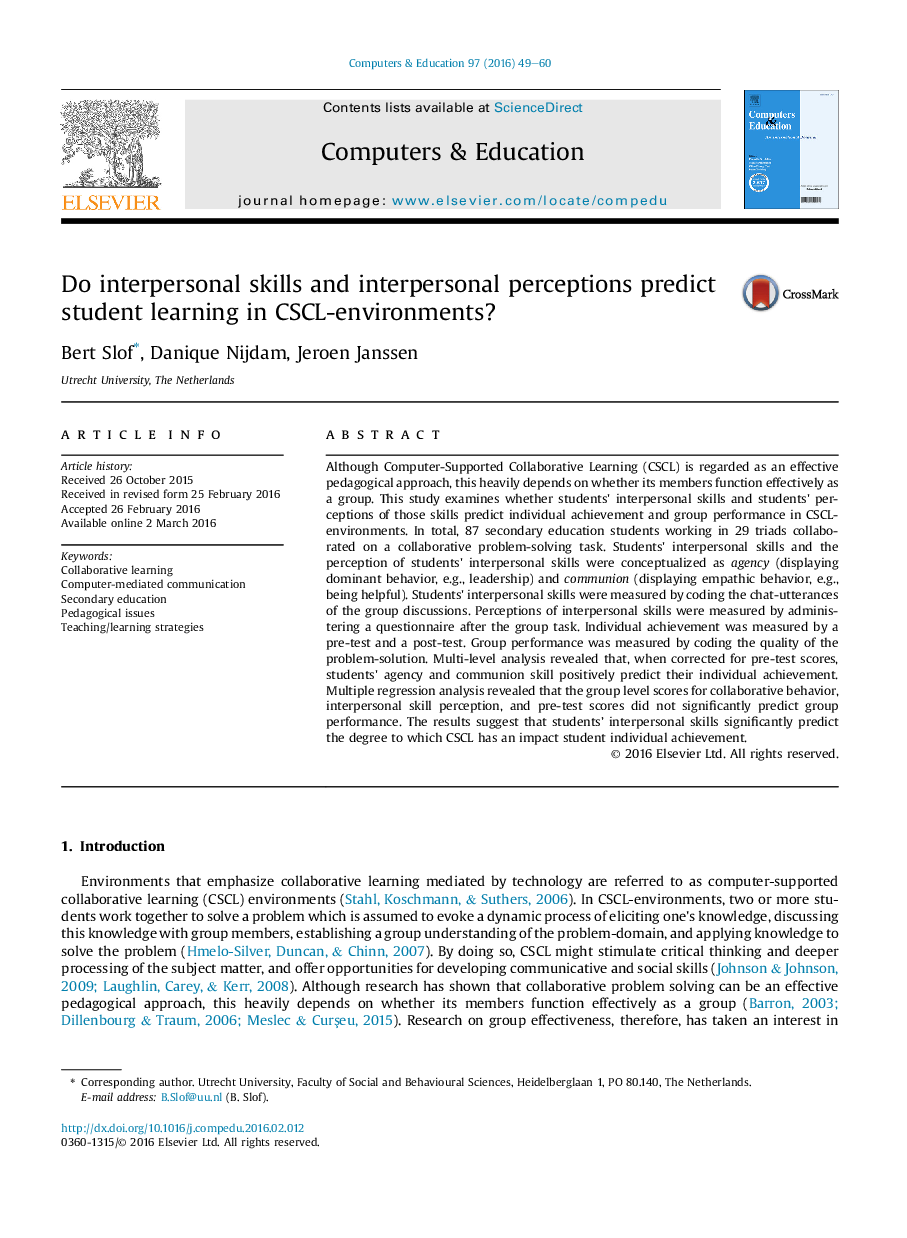| Article ID | Journal | Published Year | Pages | File Type |
|---|---|---|---|---|
| 348175 | Computers & Education | 2016 | 12 Pages |
•Interpersonal skills were conceptualized in terms of agency and communion.•Skills were measured by coding students' online chat-discussions.•Skill perception was measured using a questionnaire after task completion.•Students' skills predict their individual achievement in CSCL-environments.•Skills and perceptions do not predict group performance in CSCL-environments.
Although Computer-Supported Collaborative Learning (CSCL) is regarded as an effective pedagogical approach, this heavily depends on whether its members function effectively as a group. This study examines whether students' interpersonal skills and students' perceptions of those skills predict individual achievement and group performance in CSCL-environments. In total, 87 secondary education students working in 29 triads collaborated on a collaborative problem-solving task. Students' interpersonal skills and the perception of students' interpersonal skills were conceptualized as agency (displaying dominant behavior, e.g., leadership) and communion (displaying empathic behavior, e.g., being helpful). Students' interpersonal skills were measured by coding the chat-utterances of the group discussions. Perceptions of interpersonal skills were measured by administering a questionnaire after the group task. Individual achievement was measured by a pre-test and a post-test. Group performance was measured by coding the quality of the problem-solution. Multi-level analysis revealed that, when corrected for pre-test scores, students' agency and communion skill positively predict their individual achievement. Multiple regression analysis revealed that the group level scores for collaborative behavior, interpersonal skill perception, and pre-test scores did not significantly predict group performance. The results suggest that students’ interpersonal skills significantly predict the degree to which CSCL has an impact student individual achievement.
